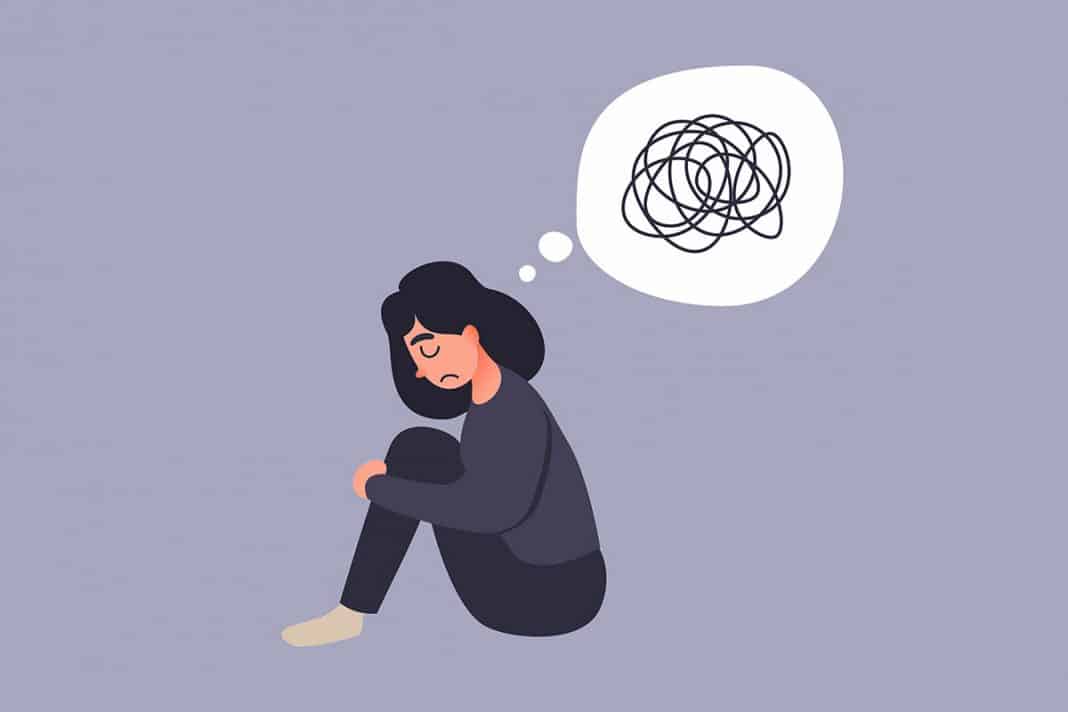Do you get nervous or irrationally frightened in social situations? Does the thought of relationships make you run and hide in your closet? If this sounds like you, you’re either just a very shy person or you suffer from social anxiety. While shyness subsides eventually, social anxiety can continually make your life and daily routine taxing.
Social anxiety (sometimes referred to as SAD or social phobia) is a common chronic mental health condition that affects more than 200,000 US citizens per year! Here are eight signs that you will relate to if you suffer from social anxiety.
1. You avoid socializing
Are you often the last person to show up at parties? Do you sneak away from family gatherings or outright reject invitations? Such avoidance behavior is an indicator that you may be suffering from social anxiety.
You may prefer to avoid being noticed and mingling with other people; even maintaining eye contact with someone for more than two seconds would be enough to make you feel jittery. Furthermore, doing seemingly simple tasks—such as initiating a conversation, eating in front of people, being the center of attraction, or even visiting public restrooms—would make you feel on edge. Sadly, all of these are signs that you might have social anxiety.
2. You are self-conscious
Those who suffer from social anxiety are always overly conscious of their actions and appearance. They are afraid of being judged by other people for what they do and how they look. As a result, they constantly worry about what others think of them.
Many people who have this chronic mental condition fear that they will be evaluated negatively by others. They assume they’ll make some silly mistake and embarrass themselves, and that people would mock them. All these thoughts keep them from heading out and socializing with their friends.
Can you relate? If so, you probably have social anxiety. You may ask how shyness is any different. A shy person will only feel self-conscious in certain situations, such as public speaking, which is completely understandable. On the other hand, a socially anxious person thinks that they are constantly being scrutinized. This is why they always throw the idea of “hanging out” out of the window.
3. You overanalyze everything
A person with social anxiety would expend a significant amount of their energy in decoding unspoken words, trivial gestures, and body language. They often obsess over their social interactions.
The need to replay social conversations in the head a zillion times and to deduce what the other person is thinking from their outward gestures are signs of social anxiety.
If you also burn through your energy overanalyzing things you’ve said and possible perceptions others have of you, you are probably a victim of social anxiety.
4. You feel uneasy, even among familiar faces
Shy people are at complete ease when they are with their family and friends. If this is not the case for you, then you should beware.
If you are extremely anxious and nervous—even in the company of your family, siblings, and close friends—this is a sign that you have social anxiety. Your irrational fears and distress will not subside, no matter how long you have been around someone and how well you know them. You will keep on dwelling on and worrying about your actions and words.
This is why something as routine as dining out with family is challenging for people suffering from social anxiety. For them, life is a series of uncomfortable events and never-ending, irrational fears.
5. Your anxiety feels out of hand
If you suffer from this chronic mental health condition, then your anxiety can be overpowering, making a simple thing into a Herculean task for you. Like we said before, even maintaining eye contact with someone for more than two seconds would trigger a series of disturbing and annoying thoughts in your head.
That said, these thoughts are often irrational and baseless. In fact, irrational thoughts are the hallmark of social anxiety. Your worries are rarely based on any fact, making no rational sense. Nonetheless, they will keep on bothering you and making things difficult for you.
6. Your anxiety affects your relationships
If you have social anxiety, it will have tangible impacts on your relationships, often complicating them to the point where you would not know how to deal with them.
This is because you feel alienated among people, no matter how close they are to you. Your irrational thoughts, misperceptions, inability to communicate, and habit of overanalyzing would all make things harder for you.
Keep in mind that this would not be the case if you are just a shy person, because a shy person is usually freed from all negative thoughts once the ice is broken. For a person with social anxiety, however, ice-breakers are as useful as an umbrella in a tsunami. Your fear of being evaluated negatively will always make you worry that your partner does not like you.
7. Your performance suffers
Unfortunately, social anxiety can impact your performance and inhibit participation. If you have social anxiety, you may find yourself deliberately not doing well. Why? Because you think that success will drive people’s attention towards you, which is the last thing you think you want.
If pitching ideas and voicing opinions makes you anxious, you may suffer from social anxiety. This condition will lead to you sitting in the corner and just taking notes. All thanks to your fear of being judged, you decide you have nothing to say.
If you are a student, then social anxiety will significantly impair the quality of your student life. The presence of other students will constantly bother you, and participation in group projects could easily worsen your mental health.
8. You experience physical symptoms
Though social anxiety is a mental condition, it has many physical manifestations. If you experience any of these symptoms in certain situations, then you indeed have social anxiety.
Some of the most common physical symptoms of social anxiety are nausea, chest palpitations, shortness of breath, and dizziness. So, not only will you feel anxious when in a social situation, you could also experience these physical symptoms.
Social anxiety can even result in long-term diseases, such as respiratory illness, heart disease, and gastrointestinal problems.
What causes social anxiety?
Though the exact cause remains unknown, many environmental and biological factors can plant the seeds of social anxiety. Here are some of the most common known reasons behind the presence of social anxiety:
Past experiences: Your social anxiety can be a result of a harrowing past. Perhaps you avoid social interactions because you experienced bullying or sexual abuse as a kid or because you had a dysfunctional family growing up.
Physical abnormalities: Social anxiety can also be a result of a serotonin imbalance in your body. Serotonin is the hormone responsible for mood regulation and happiness—serotonin issues can lead to social anxiety.
Genetic factors: If anxiety disorders run in your family, you might inherit them, as well. That being said, there is no sufficient scientific evidence to back this claim. Even if the behaviors aren’t genetically passed down, children can learn from and mimic their parents’ anxious behaviors.
Overcoming social anxiety
While social anxiety can negatively impact your life, the good news is that you can overcome it and enjoy life like everyone else—though it will require some mental training.
- Start by challenging your negative thoughts that trigger fear and anxiety. Analyze and fight against the thoughts that say things like “I am never going to be able to do this,” “I will look like a fool,” “what will people think of me?” and “they will laugh at me.” These are the thoughts that are stopping you from coming out of your room and socializing. Once you understand that all these concerns are just cooked-up stories and are a far cry from reality, you will start feeling comfortable amidst people.
- Switch from an internal to an external focus. If you want to stop being self-conscious, you will have to pay attention to the things happening around you. Rather than getting caught up in your negative thoughts, listen to what is being said.
- Do not prepare for what you’ll say when the current speaker is done talking. Instead, focus on the present moment. In fact, if you are a good listener and pay attention, you will automatically have better responses or better things to add to the conversation.
- To further challenge your anxiety, make an effort and head out to socialize. Find a group of supportive and positive people to hang out with. Gradually, you will realize that socializing is not an arduous task.
If you take these steps, you better be ready to become a happier person!



